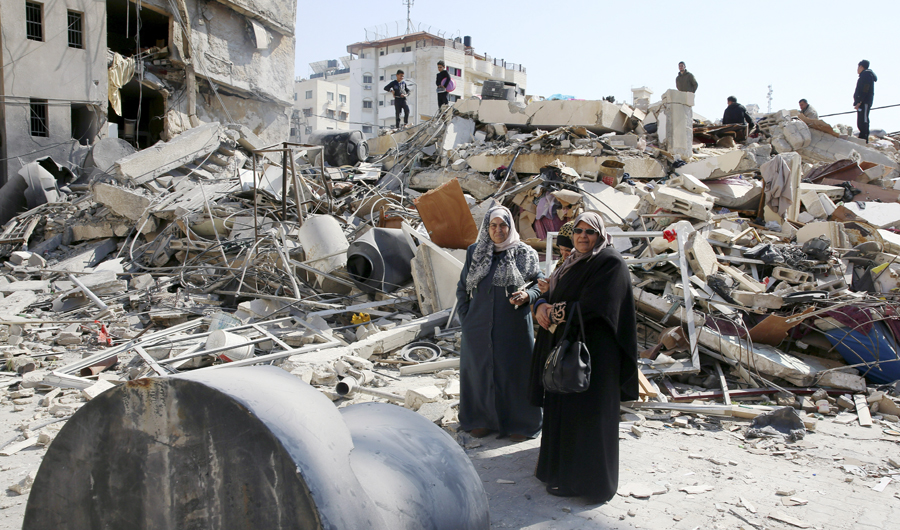Israel treats Gaza like a PlayStation
GAZA CITY: Israel’s targeting of Al-Multazem Insurance Co. in Gaza, in an airstrike that destroyed its headquarters, must raise serious questions over the country’s “target bank,” the pool of information Tel Aviv uses to decide where to launch attacks.
The company was located on the ground floor of a three-story building with four apartments, housing the 28-member Al-Ghazali family.
Talal Al-Ghazali said he received a call from an Israeli officer telling him to evacuate the house, followed by five “warning rockets” from an Israeli drone overhead before a military jet destroyed the building completely.
Al-Multazem was established in Gaza in 2008 as a Palestinian public shareholding company, and has branches across Gaza. Its old headquarters in Gaza City was destroyed in 2014, and in an area where people live cheek-by-jowl alongside businesses and government bodies, there is always the chance that they will suffer disproportionately.
“Gaza is a small area densely populated with civilians, and Israel, with its vast arsenal, treats it as a video game,” said Adnan Abu Amer, a commentator on Israel.
“Israel relies on a broad security and military system, including collaborators working on the ground, aerial photography via satellites and drones, and other forms of espionage through mobile phones and computers, and extracting information via interrogation. This information is used by Israel to update the database of its target banks.”
The banks, according to Abu Amer, include human targets, such as political and military leaders. They also contain military buildings, but also, curiously, civilian establishments and organizations crucial to Gaza’s financial structure and security.
The decision to bomb a target is taken at the top level. The bombing of the house of Hamas leader Ismail Haniyeh, for instance, would have required clearance from the Israeli defense minister. It stands to reason that bombing targets like Al-Multazem would need similar authority.
In 2014, Israel bombed all branches of banks run by Hamas in the Gaza Strip, in addition to bombing retail outlets and other economic targets.
Abu Amer claims the bombing of Al-Multazem follows that pattern, trying to cripple Gaza’s financial support structure.
Economic analyst Hamed Jad said Israel’s targeting of economic facilities had had “catastrophic consequences” for the Gaza economy over the years, exacerbated by the blockade of the area by the Israeli Defense Force for the past 13 years.
He pointed out that Israel’s stance of targeting Gaza’s economy as much as Hamas’s military wing had worsened living conditions at an alarming rate, with unemployment in Gaza now standing at 52 percent, 53 percent of Palestinians in Gaza City now living in poverty, and 68 percent of the population facing food insecurity.

Uneasy calm holds in Gaza despite exchange of firePalestinian killed by Israeli fire in West Bank clash: ministry



